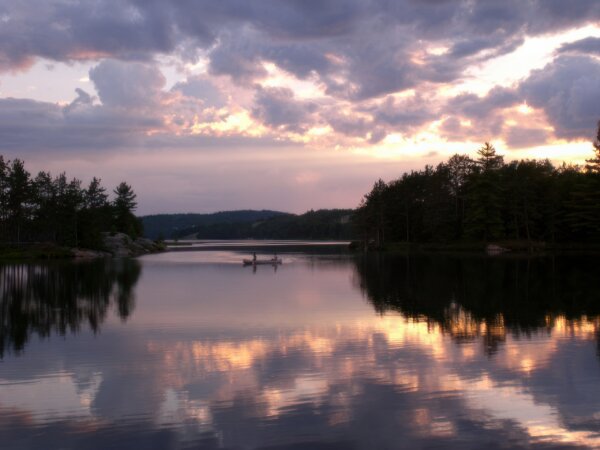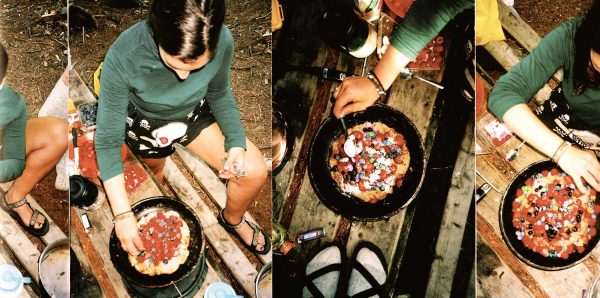Parents
Dr. Mogel weighs in on canoe trips
The following is an dialogue between Camp Walden’s Director, Sol Birenbaum, and acclaimed psychologist and bestselling author Dr. Wendy Mogel.
Sol writes:
Dear Dr. Mogel,
I really REALLY enjoyed your book and the session that you recently gave at the Ontario Camps Association Conference! As a parent and camp director, I aspire to realize your teachings in both our camp and home environment. Thank you for your inspiration!
I didn’t have a chance to formulate my question yesterday, and wondered if you had a moment to answer one for me. In my question to you, I am appealing to your expertise as a “parent persuader”.
Some context: Our camp requires that campers attend one canoe trip during their stay at camp each summer. The older the campers are, the longer the trip. Our youngest campers go for 1 night and our oldest for 5 nights.
These canoe trips are as you might imagine… food cooked over the campfire… long but relaxing paddles on beautiful Ontario lakes… pitching of tents… sleeping in… pooing in the woods…
They are safe and comfortable. I know this all to be true because I have a wonderfully nurturing and skilled trip staff whom I have visited on trip. As well, we have a comprehensive system to evaluate the success of our trips.
With each passing year, we receive more calls from parents who are resistant to this program. Some parents are beginning to insist that we cancel or at least diminish the trip’s length. I have held on and want to continue to do so. But it has reached a point (in some situations) where parents are choosing other camps for their kids because the other camps have relaxed their canoe trip policies.
The strangest part about all of this is that when kids return to camp from their canoe trip, they are laughing and excited to share their many canoe trip stories… but when winter rolls around… it is like history has changed… suddenly their memories of the canoe trip are more focussed on their wet feet, or the discomfort they felt without a mattress.
My question: How do I convince parents that this trip is good for their kids?
I should add that I am a fairly young camp director (35) and so many of our clients are indeed more experienced parents than I am (although my 2 kids have taught me quite a bit in their few years!) I want to embrace their intelligence and wisdom… but I can’t help but feel … well… right…. about this one!
I have tried everything from writing articles on the value of the trip, quoting your writings, engaging kids and parents in discussion about trip, insisting that they read your book and attend your sessions. Nothing truly seems to persuade these families away from their position and towards one of embracing the less comfortable journey.
So many parents agree “in theory” with canoe trips but only up to the point that it means confronting their kids and requiring them to do something that is a bit outside their comfort level.
I don’t want to give up – I really believe that these trips are exactly the kinds of experiences that you describe kids need. I also find myself asking “if I do something to erode these trips… what next?”
Do you have any advice? … a little nugget of insight… into how I can convince parents to just trust me on this one?
I am thankful that you took the time to read this.
Thank you again for your inspiring work,
– Sol
Dr. Mogel’s reply:
Dear Sol,
Here are some quick thoughts about why campers rewrite the experience of a wonderful canoe trip once they get home.
- The canoe trip is not a habit. It’s special and out of the range of their everyday camp experiences. It’s human nature to bond over negative experiences. We all hated it! Together!
- We remember the negative more than the positive… no one forgets the time they threw-up in third grade.
- Parents unwittingly reinforce the negative by showing more interest in it. Didja think you might….capsize?
What to do:
- Tell parents before the trip that the more kids complain, the more benefit they accrue, because they are not yet good predictors of which experiences will be of value to them in the future. For example, on the trip they learn their own strength, mastery inoculates against future fears, they learn how to operate as a member of a team, physical exertion and excitement are terrific distractions for the homesick (gets them out of their heads, breaks cycle of rumination and isolation).
- For the campers: reinforce, emphasize and highlight the positive before it evaporates. A slideshow, post-trip craft or naturalist project or skit can help highlight the positive and help inject humor into the negative. We were so scared! Cold! Wet! All of us together! It was great!
Good luck!
– Wendy Mogel, Ph.D.


Add your comment